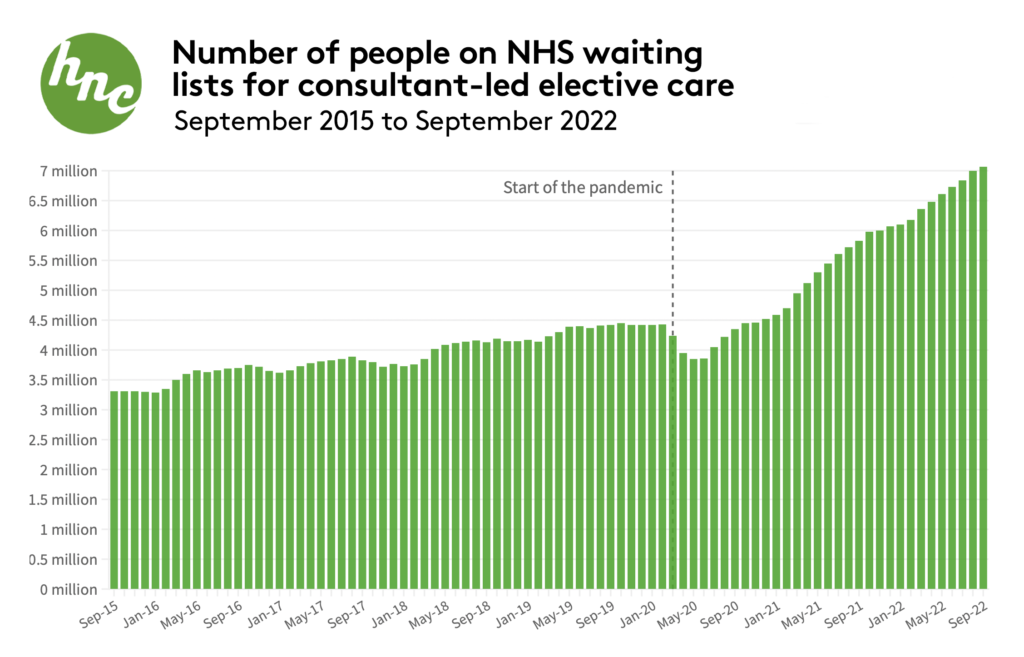Owing to the demands of delivering care during the pandemic as well as other wider factors including staff shortages and economic pressures the NHS backlog has grown to a record high.
Data taken from September 2022 shows that there are almost 7.1 million people currently waiting for treatment, with 2.87 million patients having waited for at least 18 weeks – an increase from previous months.
And in addition to this, the ‘hidden backlog’ – patients who may require care but whose health issues haven’t presented themselves – remains unknown.

What is causing the backlog?
Consisting of care that the NHS would normally have delivered, the backlog was disrupted by the COVID-19 pandemic which affected normal service delivery.
This has meant that patients scheduled for treatment during the pandemic regularly had their procedures, scans and check-ups cancelled or delayed.
Owing to the need for stringent infection control measures and workforce shortages, this now means that it will take years for the backlog to be cleared.
Digital transformation to ease the pressure?
NHS England is currently on a mission to “exploit the full potential of digital technologies”, with a plan to include digital tools and data to ease and manage waiting lists to support staff and patients.
One thing that is stopping NHS Trusts from transformation is managing the digital transformation demands as well as the cost pressures with tighter budgets.
However, steps can be made to overcome the challenges that the change presents, and we can help implement them in a smooth transition.
How can HNC help?
When taking on a project like digital transformation, this may feel like a huge undertaking, shifting data from old systems to new ones, localisation and training.
Included in our services, we help you manage the process from start to finish with guidance.
Our implementation team works to deliver projects on time and within budget from kick off to going live.
As a workforce has to adapt to change, our comprehensive training programmes cater for all users of the system.
System integration with existing systems is important, and we can help update whilst also integrating with infrastructure in place via industry-standard protocols such as HL7, FHIR and DICOM.
We support our customers throughout the whole process, and we also offer all customers a Service Level Agreement which gives them access to our Service Desk and application support from our team of experts.
Contact us to find out more about how digital transformation can help streamline workflow, systems and waiting times.
